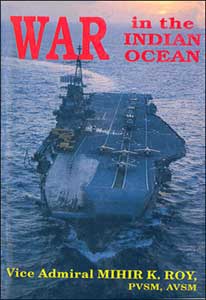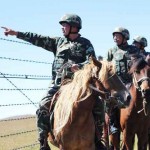President Yahya Khan postponed the holding of the Assembly indefinitely thus setting in motion a civil disobedience movement in East Bengal. The French philosopher, Andre Malraux, said in his foreword to the Indian Council of World Affairs when volunteering to fight In East Pakistan, The electoral victory of the Awami League was troublesome for Rawalpindi… but it did not exterminate its opponents… If politics is an art, then it is one of reconciliation and not of assassination. Volunteers from France were ready to fight for Bangladesh.
At that time, France was hardly aware of India’s stand. They were only motivated by the memory of Biafra, the exodus of refugees and the systematic extermination of the Bengali elite.
Yahya Khan then called for a conference of all political leaders in Dacca on 10 March 1971. Mujib declined the invitation which he said was due to the mechanization of ‘murderer No. 1 – Zulfikar Bhutto’ and instead announced that he would make an important statement on 7 March 1971. He also demanded the withdrawal of troops to their barracks. President Yahya forestalled Mujib and announced on 6 March that the National Assembly would meet on 25 March 1971. With massive support of people from all walks of life, Mujib was in virtual control of the civil administration by 15 March 1971. The entire government machinery was taking orders from him. Such was the nationalist fervour that even the Governor designate to East Pakistan, Lieutenant General Tikka Khan, was not administered the oath of office by any of the judges of the Dacca High Court.
With massive support of people from all walks of life, Mujib was in virtual control of the civil administration by 15 March 1971. The entire government machinery was taking orders from him.
President Yahya arrived in Dacca on 15 March 1971 for talks with Mujib in an attempt to find a solution. He was assisted by Generals Tikka Khan, Ghulam Umar, Farman Ali Khan, A. G. Mitha, S. M. G. Peerzada and Air Commodore Masud. It was not considered necessary to include a naval representative. Mujib, in turn was assisted by Tajuddin, Kamal Hossain and Syed Nazrul Islam. Wali Khan and Ghous Bux Bizenjo of the Awami League also arrived at Dacca on 13 March. On the evening of 14 March, Mian Mumtaz Daultana and Shaukat Hayat Khan of the Muslim League and Maulana Mufti Mehmood of the Jamait-ul-Islam reached Dacca. Bhutto, who had earlier declined to participate in the talks ultimately reached Dacca on 21 March and had separate meetings with Yahya and Mujib.
On 22 March, President Yahya Khan postponed the meeting of the National Assembly indefinitely. Mujib was dissatisfied with the way the Army had been handling the situation and declared that 23 March, which was Pakistan Day, would be observed as ‘Resistance Day’ in East Bengal. There were demonstrations, parades, students marching in military formations with the Bangladesh flag fluttering openly while crowds trampled the Pakistani flag. Major General M. K. Majid and Colonel Osmani, two Bengali officers led a procession to Mujib’s House in Dhanmandi and were joined by the students of the Joy Bangia brigade. And finally the Awami League team arrived at the President’s house flying the Bangladesh flag.
| Editor’s Pick |
President Yahya Khan left Dacca secretly at midnight on 25/26 March after other political leaders had departed. At 1000 hours on 26 March 1971, Lieutenant General Tikka Khan, on the instructions of Yahya, imposed martial law in East Bengal and executed orders for military action ‘to reinstate public order and central authority’. These orders had been approved as early as 20 March even when talks between President Yahya Khan, Mujib and Bhutto were underway.
 On arrival at Islamabad, Yahya Khan whipped off decrees banning the Awami League, charging Mujib with treason and postponing the National Assembly indefinitely. The new constitution, he declared, would be handpicked by him. Autonomy for East Bengal was rejected. Islamabad’s rule would continue. There was to be no constitutional transition or transfer of power. Strict censorship was imposed. Major Generals Farman Ali and Khadim Raja visited brigade commanders and orally delivered the operational orders which contained the following instructions.3
On arrival at Islamabad, Yahya Khan whipped off decrees banning the Awami League, charging Mujib with treason and postponing the National Assembly indefinitely. The new constitution, he declared, would be handpicked by him. Autonomy for East Bengal was rejected. Islamabad’s rule would continue. There was to be no constitutional transition or transfer of power. Strict censorship was imposed. Major Generals Farman Ali and Khadim Raja visited brigade commanders and orally delivered the operational orders which contained the following instructions.3
- Treat the Awami League as rebels.
- East Pakistani units and police to be disarmed.
- Awami and student leaders were to be arrested.
- General Tikka was appointed Governor and he ruled with the grace of a Nazi Gualeiter in former occupied Europe till he was replaced in August 1971.
The breakup of Pakistan commenced, as it were, on the night of 25 March 1971.
Continued…: Untold Heroism of Mukti Bahini Frogmen: Prelude to Liberation – II




